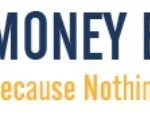Does having an auto loan cause your car insurance premium to go up? As it turns out, there’s no straight answer to this question. Whether your auto loan will affect your insurance will depend on a few different factors, such as what state you live in and the person lending the car.
How Can an Auto Loan Affect Your Insurance?
Most auto insurance companies don’t raise their costs simply because you have a car loan. Generally, as long as you meet the minimum requirements for liability coverage, you’re good. However, because the lender has a lien on your vehicle and will want to make sure their interests are protected in the case of an accident or theft, they may require additional coverage to be added to your plan, such as comprehensive and collision coverage. This is often known as force-placed insurance, and it can be both beneficial and costly.
What is Force-Placed Insurance?
Force-placed insurance is insurance coverage that your car lender can legally require you to have. When you financed your car, you probably signed a contract promising to insure the car properly. If your lender finds that you have only the minimum liability coverage, they can enforce force-placed insurance, which is designed to cover collision and comprehensive damages and protect the lender’s property. Your lender will take out the policy, but you will be responsible for the cost.
Will Force-Placed Insurance Raise My Insurance Costs?
In short, yes, and often with little to no benefit to you. Because you don’t own your own car insurance, you may be considered a higher risk for the insurance company and subject to a higher monthly premium.
Force-placed insurance also may not protect you as a driver, as it usually only looks out for the lender’s interests. You will still have to purchase additional insurance that will look out for your interests. Also, force-placed insurance often does not include the basic liability insurance which is required in every state, so you may find yourself paying multiple car insurance premiums every month.
Is Force-Placed Insurance All Bad?
Not necessarily. Although most people like to cut costs by purchasing only the basic liability auto insurance, you may find that these additional coverages are a worthwhile addition to your policy, especially if your vehicle is on the more expensive end.
Comprehensive coverage, for example, covers such misfortunes as theft, vandalism, or damages caused by natural disasters. It is also cheaper than collision coverage. If you live in a place where car theft is common or an area where you are at a higher risk for a disaster, you may find that comprehensive coverage is actually very cost-effective. Furthermore, if you get into an accident, you may find the cost of collision coverage is actually less than the cost of repairing the damage to your vehicle, especially if your vehicle is on the more expensive end. No other insurance will cover damage to a car caused by an accident.
I Don’t Want Extra Coverage. What Can I Do to Reduce Costs?
The best thing that you can do to reduce the cost of a force-placed premium is to pay off your loan as quickly as possible. Once your loan is paid off and you are in full ownership of your car, you can have more control over your auto insurance plan. You can own your own insurance, which will generally lower your monthly premium, and you will be free to choose for yourself whether you want to add any additional coverage to your basic liability policy.
You may also have the option of contacting a car insurance carrier of your own choosing that can offer full coverage, including the minimum liability requirements and everything necessary to protect both you as a driver and your lender’s interests.
Many factors come into play when determining the cost of your auto insurance. Whether or not an auto loan is one of those factors will depend on your lender, your current insurance plan, and the state where you live. The best way to keep costs down from the get-go is to read your auto loan contract thoroughly before you sign it, and look for a cost-effective insurance policy that will still cover all of the lender’s interests.













